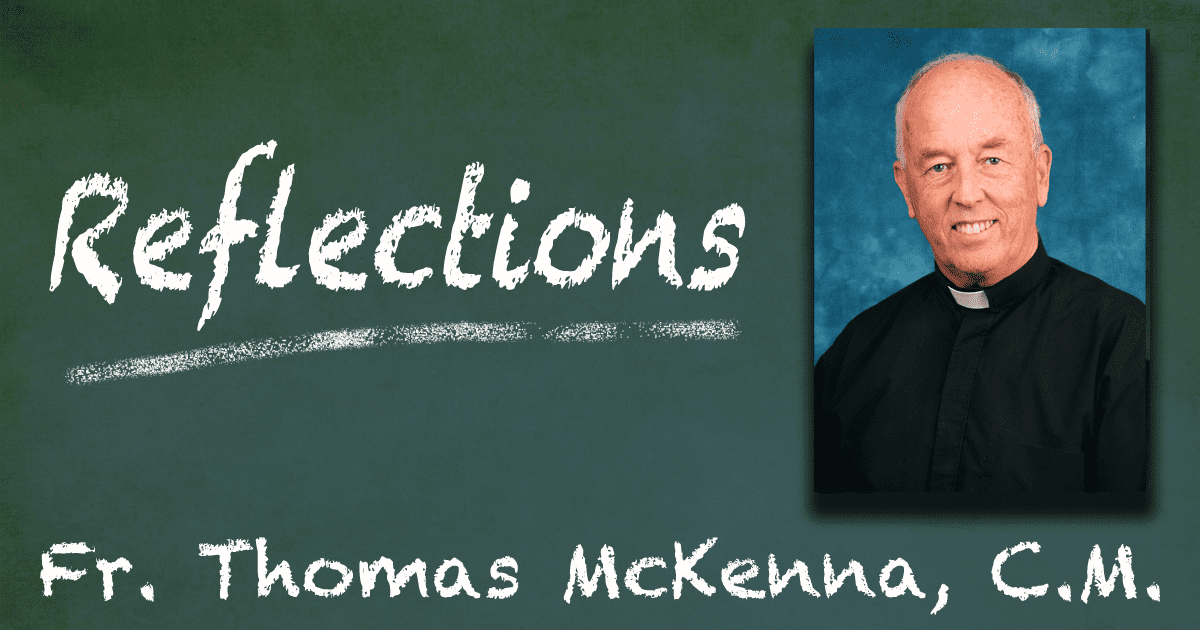There’s a method of praying known as prayer of the imagination. It would have us visualize ourselves inside one or another scene from the Bible and there attend to our feelings, our senses of sight, smell, and hearing. Imaging the incident in all its colors, we would simply let it speak to us.
There aren’t too many more drama-filled Gospel scenes than the ones of Jesus and the apostles lost in a storm-tossed sea. Mark portrays it vividly, all of them wet and windblown, the skiff bobbing like a cork on those waves, the water breaking over the bow.
The apostles are getting more panicky and helpless by the minute. Not just disappointed in Jesus, they are angry at him not only because it was his idea to cross this sea but more because he’s exasperatingly asleep in the back of the boat.
The prayer of imagination would have us apply this scenario to some crisis time in our own lives and to join the twelve in that swamping boat. What was it like to implore this sleeping Jesus who can’t seem to wake up? Besides the fright, what other things might we feel?
One is anger. “Here I am, a believer in God and God’s love for me, a follower of Jesus the good and caring Shepherd. No matter how loudly I cry out in prayer, there’s no answer, only slumbering silence.”
Which raises the question, is it ok to be angry at God? Though there are numerous responses (including, “God can take it!”), one that has reassured the faithful all along is awareness of good company. Listen to some of these outbursts from the book of Psalms.
“Why, Lord, do you stand far off? Why hide yourself in times of trouble?” (Ps 10)
“All night long, O Lord, I flood my bed with weeping and drench my couch with tears. My soul is in deep anguish. How long, O Lord. How long?” (Ps 6)
There laments make up fully one third of all the psalms and were purposefully included as genuine forms of prayer. They certainly resonate with the angry cries to our so-called Savior asleep in the back of the boat! Coming right from the heart they sync with those heavy times that are part of most everyone’s experience, including the Saints. Disappointment with God fits in with genuine faith.
But then a second phase. The apostles keep on angrily shaking Jesus — but do so out of a deeper trust that he is concerned and has the power to help them. It certainly fits those times in life when even though feeling alone and abandoned, we keep on trusting, keep on hoping in something we can’t see but believe is truly there.
A striking image from the Book of Hebrews catches the spirit of this perseverance. It is of an anchor we throw, not down into the depths, but rather out ahead of us into the future. The author pictures us holding onto a rope – this is our faith — and at the end of the rope is an anchor. What we are to do, he counsels, is swing that anchor forward, throwing it through a veil out in front of us so it grabs onto something solid though invisible on the other side. (Heb 6:19)
With that feel for the solidity of what is still to come, for what Paul calls the “substance of things still hoped for,” we hang on to that rope – our hope. We keep trusting that this seemingly non-responsive Lord is out there out beyond the veil and is forever anchoring us securely.
The prayer of imagination: a time-tested method for bringing the Scriptures into our lives, and a fruitful way of weaving our lives into the healing that comes through God’s Word. St. Vincent himself recommends it. In this passage about the storm, it would have us feel threat, smell fear, register impatience, and hang on to the line that is anchored in the heart of the Lord of all life.








0 Comments